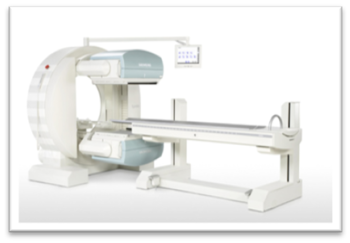Health and sustainable energy research at the RID Health
Health
One of the main lines of research at the RID is a programme focusing upon the use of radioactivity in medicine. For example, in such domains as radiodiagnostics and radiotherapy. In these areas, we are working closely with academic hospitals to develop a new generation of radioisotopes or “nuclear medicines”, which target cancer cells with a high degree of accuracy whilst leaving healthy tissue undamaged. The OYSTER programme will give this work a massive impetus.
Sustainable energy
The ability to store energy is vital for electric mobility and to make sustainable sources of power, such as solar cells and wind turbines, more efficient. Projects under way at the RID include the development of new materials for the effective storage of energy in, say, lithium batteries of the type used in every mobile telephone and tablet. The focus of our efforts is a better battery with a shorter charging time and a greater power capacity. The OYSTER programme will result in a greater understanding of the materials needed and so pave the way for a “superbattery”.
